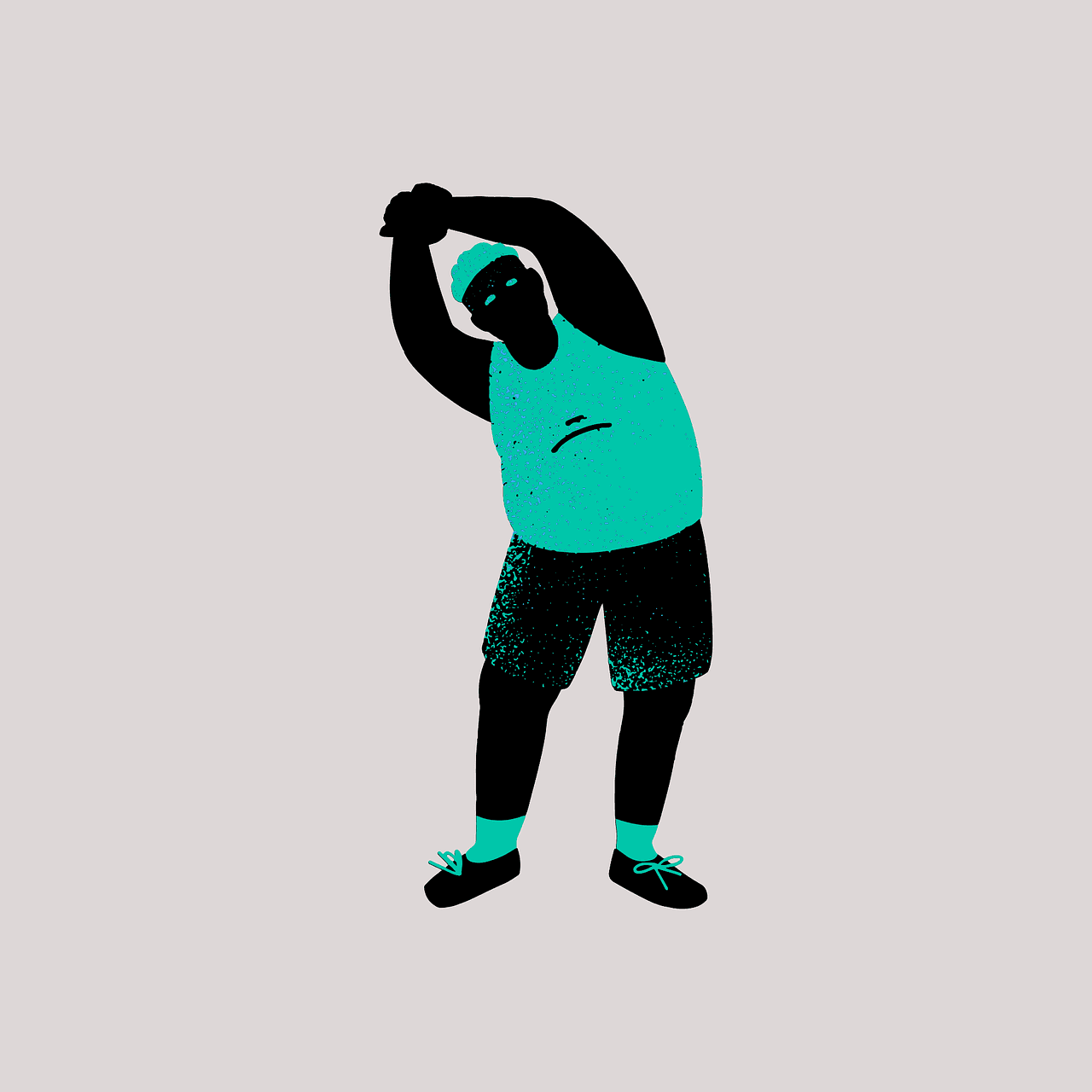


The Cycle of Change
Goal Setting
December 1, 2024
December 1, 2024
December 1, 2024
12
12
12
min read
min read
min read
I work with clients who often want to make healthy lifestyle changes, but cannot seem to make them stick. There can be many reasons why they aren’t able to reach their goals and part of my job is to help them narrow down where they are in the process and how to take meaningful steps in the right direction.
One important aspect of making changes is being honest with yourself about your mindset regarding the changes you would like to make. Psychologist James Prochaska developed The Transtheoretical Model of Behavior Change (TTM) along with his colleagues in the 1970’s. The TTM is a tool that helps determine what stage of change a person is in so that their needs can be addressed more accurately. There are 6 stages of change, and for each stage there are different options for how to move forward.
Stage 1 Pre-contemplation
Have you ever heard the phrase “the first stage is denial”? That is what this stage refers to. Someone in the pre-contemplation stage is not yet ready to make any changes, and they don’t think change is necessary for them. If you are at this stage, you probably wouldn’t be reading this, however there may be some areas in your life that you have not recognized as problem areas. It is important to stay open minded toward positive changes and actively search for ways to improve.
Stage 2 Contemplation
At this stage you may have realized that change is necessary and found your way to my website to find ways to improve. Congratulations! The next move to make is to continue to find resources and make a commitment to take action for your self improvement.
Stage 3 Preparation
This is a very important step in your behavior change. At this stage you are honoring your commitment to yourself by honing in on the resources you will utilize and creating a plan to move forward with the intention to follow through. Wellness coaching is a great way to get personalized recommendations for what to use and how to prepare effectively.
Stage 4 Action
Action is one of the most exciting stages. Not only have you made and stuck to your commitment, you are putting your plans and preparation into effect. The most important thing to remember is that you must continue the action for enough time to see real results. This can be tough sometimes depending on what results you are looking for. Though you may not see the exact changes you want right away, it is imperative to pinpoint small victories because they are what lead to the bigger results. Small changes can be motivating and that motivation is necessary to keep going.
Stage 5 Maintenance
Maintaining can feel like a breath of fresh air, this is where you have been consistent for at least 6 months. By this time you have seen real results and you have built some confidence in yourself. You will also need to maintain your motivation as you maintain your habits. Focus on the positive results of your new habits and how they serve you better than the habits you have left behind. This stage still takes work so that you do not venture into the next stage; relapse. Regular coaching sessions can keep you on track and allow you to resist temptation.
Stage 6 Relapse
This stage is also known as termination. Going back to old habits does happen, and many times there is a trigger for the relapse. If you find yourself going back to behaviors that do not serve you, it is time to do some research. What was happening when you were making better decisions, and what caused you to go back? A relapse is not the end of the road, it can often be part of the process and offer insight into what things you might need to do to make the changes stick. As a coach, I will help you explore your relapse and get back to the habits that help you stay on track.
_____
These stages can be completed in order, steps can be skipped, and sometimes you might even go backwards. They are a cycle that everyone completes in a different way. Coaching is a way to help streamline the process and get you from contemplation to maintenance in less time and without relapse. I can help you get there! Contact me and set up your action plan today.
I work with clients who often want to make healthy lifestyle changes, but cannot seem to make them stick. There can be many reasons why they aren’t able to reach their goals and part of my job is to help them narrow down where they are in the process and how to take meaningful steps in the right direction.
One important aspect of making changes is being honest with yourself about your mindset regarding the changes you would like to make. Psychologist James Prochaska developed The Transtheoretical Model of Behavior Change (TTM) along with his colleagues in the 1970’s. The TTM is a tool that helps determine what stage of change a person is in so that their needs can be addressed more accurately. There are 6 stages of change, and for each stage there are different options for how to move forward.
Stage 1 Pre-contemplation
Have you ever heard the phrase “the first stage is denial”? That is what this stage refers to. Someone in the pre-contemplation stage is not yet ready to make any changes, and they don’t think change is necessary for them. If you are at this stage, you probably wouldn’t be reading this, however there may be some areas in your life that you have not recognized as problem areas. It is important to stay open minded toward positive changes and actively search for ways to improve.
Stage 2 Contemplation
At this stage you may have realized that change is necessary and found your way to my website to find ways to improve. Congratulations! The next move to make is to continue to find resources and make a commitment to take action for your self improvement.
Stage 3 Preparation
This is a very important step in your behavior change. At this stage you are honoring your commitment to yourself by honing in on the resources you will utilize and creating a plan to move forward with the intention to follow through. Wellness coaching is a great way to get personalized recommendations for what to use and how to prepare effectively.
Stage 4 Action
Action is one of the most exciting stages. Not only have you made and stuck to your commitment, you are putting your plans and preparation into effect. The most important thing to remember is that you must continue the action for enough time to see real results. This can be tough sometimes depending on what results you are looking for. Though you may not see the exact changes you want right away, it is imperative to pinpoint small victories because they are what lead to the bigger results. Small changes can be motivating and that motivation is necessary to keep going.
Stage 5 Maintenance
Maintaining can feel like a breath of fresh air, this is where you have been consistent for at least 6 months. By this time you have seen real results and you have built some confidence in yourself. You will also need to maintain your motivation as you maintain your habits. Focus on the positive results of your new habits and how they serve you better than the habits you have left behind. This stage still takes work so that you do not venture into the next stage; relapse. Regular coaching sessions can keep you on track and allow you to resist temptation.
Stage 6 Relapse
This stage is also known as termination. Going back to old habits does happen, and many times there is a trigger for the relapse. If you find yourself going back to behaviors that do not serve you, it is time to do some research. What was happening when you were making better decisions, and what caused you to go back? A relapse is not the end of the road, it can often be part of the process and offer insight into what things you might need to do to make the changes stick. As a coach, I will help you explore your relapse and get back to the habits that help you stay on track.
_____
These stages can be completed in order, steps can be skipped, and sometimes you might even go backwards. They are a cycle that everyone completes in a different way. Coaching is a way to help streamline the process and get you from contemplation to maintenance in less time and without relapse. I can help you get there! Contact me and set up your action plan today.
I work with clients who often want to make healthy lifestyle changes, but cannot seem to make them stick. There can be many reasons why they aren’t able to reach their goals and part of my job is to help them narrow down where they are in the process and how to take meaningful steps in the right direction.
One important aspect of making changes is being honest with yourself about your mindset regarding the changes you would like to make. Psychologist James Prochaska developed The Transtheoretical Model of Behavior Change (TTM) along with his colleagues in the 1970’s. The TTM is a tool that helps determine what stage of change a person is in so that their needs can be addressed more accurately. There are 6 stages of change, and for each stage there are different options for how to move forward.
Stage 1 Pre-contemplation
Have you ever heard the phrase “the first stage is denial”? That is what this stage refers to. Someone in the pre-contemplation stage is not yet ready to make any changes, and they don’t think change is necessary for them. If you are at this stage, you probably wouldn’t be reading this, however there may be some areas in your life that you have not recognized as problem areas. It is important to stay open minded toward positive changes and actively search for ways to improve.
Stage 2 Contemplation
At this stage you may have realized that change is necessary and found your way to my website to find ways to improve. Congratulations! The next move to make is to continue to find resources and make a commitment to take action for your self improvement.
Stage 3 Preparation
This is a very important step in your behavior change. At this stage you are honoring your commitment to yourself by honing in on the resources you will utilize and creating a plan to move forward with the intention to follow through. Wellness coaching is a great way to get personalized recommendations for what to use and how to prepare effectively.
Stage 4 Action
Action is one of the most exciting stages. Not only have you made and stuck to your commitment, you are putting your plans and preparation into effect. The most important thing to remember is that you must continue the action for enough time to see real results. This can be tough sometimes depending on what results you are looking for. Though you may not see the exact changes you want right away, it is imperative to pinpoint small victories because they are what lead to the bigger results. Small changes can be motivating and that motivation is necessary to keep going.
Stage 5 Maintenance
Maintaining can feel like a breath of fresh air, this is where you have been consistent for at least 6 months. By this time you have seen real results and you have built some confidence in yourself. You will also need to maintain your motivation as you maintain your habits. Focus on the positive results of your new habits and how they serve you better than the habits you have left behind. This stage still takes work so that you do not venture into the next stage; relapse. Regular coaching sessions can keep you on track and allow you to resist temptation.
Stage 6 Relapse
This stage is also known as termination. Going back to old habits does happen, and many times there is a trigger for the relapse. If you find yourself going back to behaviors that do not serve you, it is time to do some research. What was happening when you were making better decisions, and what caused you to go back? A relapse is not the end of the road, it can often be part of the process and offer insight into what things you might need to do to make the changes stick. As a coach, I will help you explore your relapse and get back to the habits that help you stay on track.
_____
These stages can be completed in order, steps can be skipped, and sometimes you might even go backwards. They are a cycle that everyone completes in a different way. Coaching is a way to help streamline the process and get you from contemplation to maintenance in less time and without relapse. I can help you get there! Contact me and set up your action plan today.
I work with clients who often want to make healthy lifestyle changes, but cannot seem to make them stick. There can be many reasons why they aren’t able to reach their goals and part of my job is to help them narrow down where they are in the process and how to take meaningful steps in the right direction.
One important aspect of making changes is being honest with yourself about your mindset regarding the changes you would like to make. Psychologist James Prochaska developed The Transtheoretical Model of Behavior Change (TTM) along with his colleagues in the 1970’s. The TTM is a tool that helps determine what stage of change a person is in so that their needs can be addressed more accurately. There are 6 stages of change, and for each stage there are different options for how to move forward.
Stage 1 Pre-contemplation
Have you ever heard the phrase “the first stage is denial”? That is what this stage refers to. Someone in the pre-contemplation stage is not yet ready to make any changes, and they don’t think change is necessary for them. If you are at this stage, you probably wouldn’t be reading this, however there may be some areas in your life that you have not recognized as problem areas. It is important to stay open minded toward positive changes and actively search for ways to improve.
Stage 2 Contemplation
At this stage you may have realized that change is necessary and found your way to my website to find ways to improve. Congratulations! The next move to make is to continue to find resources and make a commitment to take action for your self improvement.
Stage 3 Preparation
This is a very important step in your behavior change. At this stage you are honoring your commitment to yourself by honing in on the resources you will utilize and creating a plan to move forward with the intention to follow through. Wellness coaching is a great way to get personalized recommendations for what to use and how to prepare effectively.
Stage 4 Action
Action is one of the most exciting stages. Not only have you made and stuck to your commitment, you are putting your plans and preparation into effect. The most important thing to remember is that you must continue the action for enough time to see real results. This can be tough sometimes depending on what results you are looking for. Though you may not see the exact changes you want right away, it is imperative to pinpoint small victories because they are what lead to the bigger results. Small changes can be motivating and that motivation is necessary to keep going.
Stage 5 Maintenance
Maintaining can feel like a breath of fresh air, this is where you have been consistent for at least 6 months. By this time you have seen real results and you have built some confidence in yourself. You will also need to maintain your motivation as you maintain your habits. Focus on the positive results of your new habits and how they serve you better than the habits you have left behind. This stage still takes work so that you do not venture into the next stage; relapse. Regular coaching sessions can keep you on track and allow you to resist temptation.
Stage 6 Relapse
This stage is also known as termination. Going back to old habits does happen, and many times there is a trigger for the relapse. If you find yourself going back to behaviors that do not serve you, it is time to do some research. What was happening when you were making better decisions, and what caused you to go back? A relapse is not the end of the road, it can often be part of the process and offer insight into what things you might need to do to make the changes stick. As a coach, I will help you explore your relapse and get back to the habits that help you stay on track.
_____
These stages can be completed in order, steps can be skipped, and sometimes you might even go backwards. They are a cycle that everyone completes in a different way. Coaching is a way to help streamline the process and get you from contemplation to maintenance in less time and without relapse. I can help you get there! Contact me and set up your action plan today.
For reading through, I Wish you a Healthy life.


